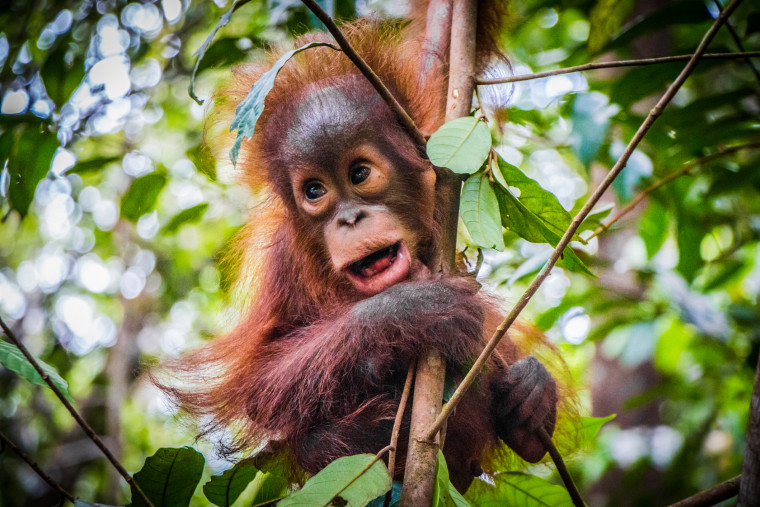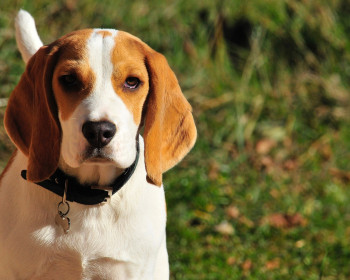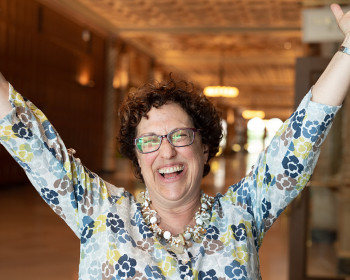Our Relationship with Animals was Transformed at the 29th Annual Animal Law Conference
Open gallery

The 29th Annual Animal Law Conference—Transforming Our Relationship with Animals—was a remarkable success! Due to the ongoing global pandemic, the Conference was held virtually over the course of three days from October 15-17th which allowed 572 people to attend. The Conference is co-hosted annually by the Center for Animal Law Studies (CALS) and the Animal Legal Defense Fund (ALDF). This year’s program focused on our relationship with animals and how we can improve that relationship for the benefit of the animals, the planet, and even ourselves. With over 60 speakers discussing a range of topics from advocating for animals in law, to the complex emotional lives of chickens, to humane education for children, the call to action couldn’t be more clear.
The Conference opened on Friday, October 15th, with a warm welcome from Pamela Hart, Assistant Dean and Executive Director of CALS, and Mark Walden, the Chief Programs Officer of ALDF. From there, attendees were treated to a plenary round table discussion moderated by Professor of Practice and the “Mother of Animal Law,” Joyce Tischler, where we learned about the similarities and complexities between many species of animals. We followed with two discussions attendees could choose from: “Reforming the Common Law Foundations of Our Relationship with Animals” featuring the Honorable Judge Elena Liberatori, who is the first judge in Argentina and one of the first in the world to recognize an animal’s “non-human” personality in the case of Sandra, a 34 year old Orangutan; and “Factory Farming & The Fragility of Our Food System” featuring poignant presentations including Hannah Connor, the Senior Attorney the Environmental Health Program at the Center for Biological Diversity. Friday closed with the keynote presentation by ecologist and author, Carl Safina, who took us on a journey through the amazing similarities between humans and the rest of the animal kingdom. One of the many fascinating similarities is that many other animals also have culture and even cultural differences within the same species. Orcas who hunt fish, for example, live in entirely separate groups from orcas who hunt mammals, and both groups have specialized hunting techniques they teach each other so they can hunt their respective food sources. These cultures are so distinct that two groups of Orcas haven’t interbred for about 300,000 years despite living in the same area.
Saturday began with two discussions focusing on litigation and legislation for farmed animals around the world. We heard from several speakers including Christopher Berry, a managing Attorney at ALDF who taught us about the complicated workarounds to defend the needs of animals in law and the intricacies of guardianship for animals who are plaintiffs in cases by detailing the infamous case about the monkey selfie, Naruto v. Slater. The day continued with fascinating and timely roundtable discussions about the interconnectedness of animal, human, and environmental health, an approach called One Health, moderated by Senior Staff Attorney, Nick Fromherz, of the Global Law Alliance for Animals and the Environment, and a panel of experts, including Clinical Professor Erica Lyman, who is the Director of the Global Law Alliance. Finally, attendees were able to finish the day with deep discussions on how Courtroom Animal Advocate Programs work in practice and the social and legal challenges of implementing advocates in courtrooms. Viewers could also learn about preserving the human-animal bond through creating and sustaining access to care.
The final day began with an ethics presentation by Russ Mead, the Shared Earth Foundation Visiting Professor at Lewis & Clark Law School. His talk focused on scenarios to get aspiring and practicing lawyers to consider the legal ethical questions we face in animal law. For those pursuing a career with an Animal Law LLM degree, there was a fantastic discussion featuring Lewis & Clark Law School alumni from around the world who obtained their Animal Law LLM at CALS. Sunday’s second round of discussions took viewers through conversations about the perceived necessity of animal experimentation and how that reliance may be approaching an end, as well as a talk about investments and progress in alternatives to animal-based foods and the struggles food producers face when animal-based products still benefit from extreme levels of subsidies and externalized costs. The Conference ended with two presentations viewers could choose from. The first was about the American Bar Association’s role in expanding justice for animals. The second brought in Meena Alagappan from Humane Education Advocates Reaching Teachers, Shawn Sweeney from The Jane Goodall Institute, and Nandita Bajaj from the Fair Start Movement to teach us about how humane education for children and adults can change our relationship with animals for the better.
The Conference explored an array of successes and challenges in the world of animal law and our efforts to improve our relationship with animals, but one common theme through every presentation was the call to action and the idea that with awareness and advocacy, these goals can be achieved. We would like to thank the Animal Law Conference Planning Committee who worked tirelessly to make this year’s conference not only possible, but a huge success with an incredible array of speakers and topics. This includes from ALDF: Liberty Mulkani, Elaina Gavounas, Priscilla Rader, Stacey Gordon Sterling, and from CALS, Megan Senatori. A special thank you also to our Platinum Sponsors, the Brooks Institute for Animal Rights Law & Policy and Miyoko’s Creamery, who generously supported the Conference.
Thank you everyone for attending and continuing to drive the passion that binds us and our work with animals. This community’s hard work and dedication is what makes the future for animals hopeful, and we’re so grateful to each and every one of you for being a part of it.
Next year’s Animal Law Conference marks the 30th anniversary and will be taking place in Portland, Oregon, from November 4-6, 2022. Mark your calendars, and we look forward to seeing you there!
Please note that registration for on-demand access to the Animal Law Conference is available at reduced rates through December 31, 2021! Register now.
*Videos will be publicly available via the Animal Law Conference YouTube channel in the new year.


The Center for Animal Law Studies (CALS) was founded in 2008 with a mission to educate the next generation of animal law attorneys and advance animal protection through the law. With vision and bold risk-taking, CALS has since developed into a world-renowned animal law epicenter, with the most comprehensive animal law curriculum offered anywhere. In addition, CALS is the only program that offers an advanced legal degree in animal law, now offered both in-person and online, and three specialty animal law clinics. CALS is a nonprofit organization and is only able to provide these educational opportunities through donations and grants.
More Center for Animal Law Studies Stories
Center for Animal Law Studies is located in Wood Hall on the Law Campus.
MSC: 51
email cals@lclark.edu
voice 503-768-6960
Center for Animal Law Studies
Lewis & Clark Law School
10101 S. Terwilliger Boulevard MSC 51
Portland OR 97219

